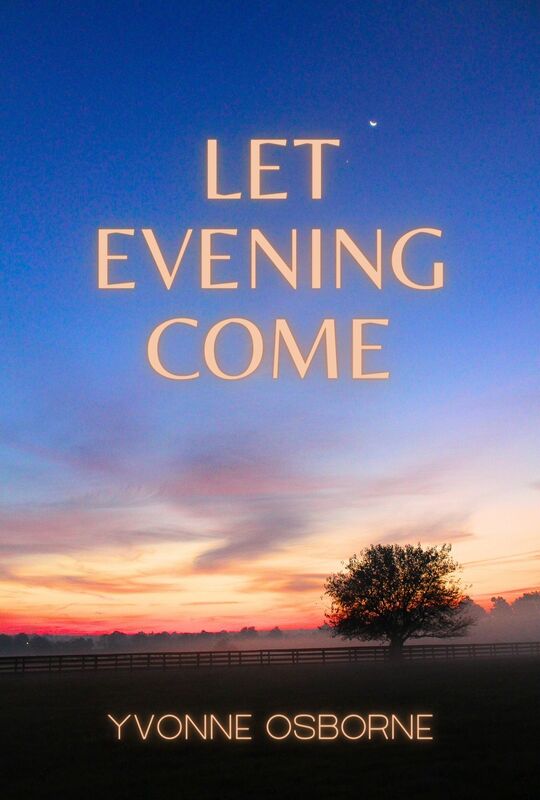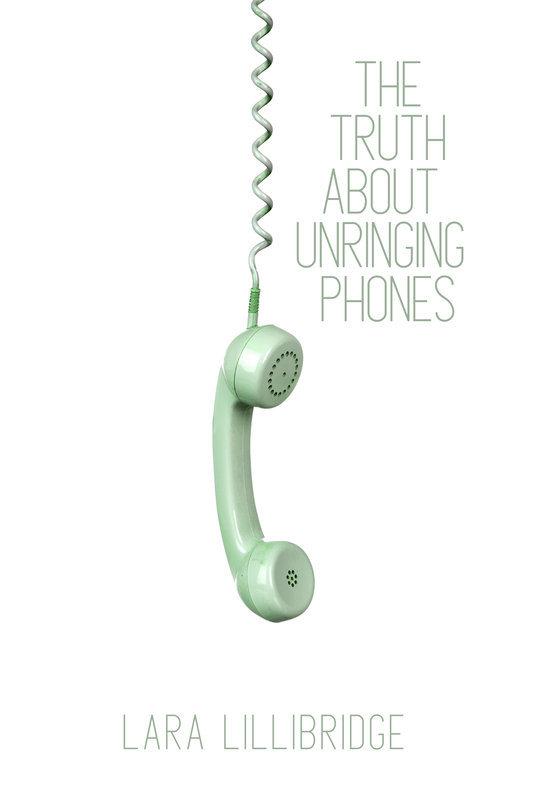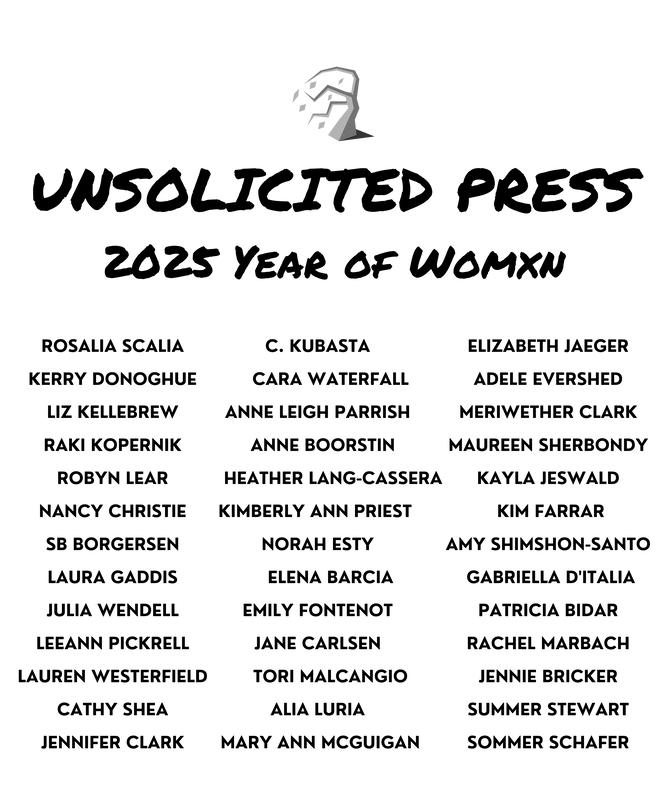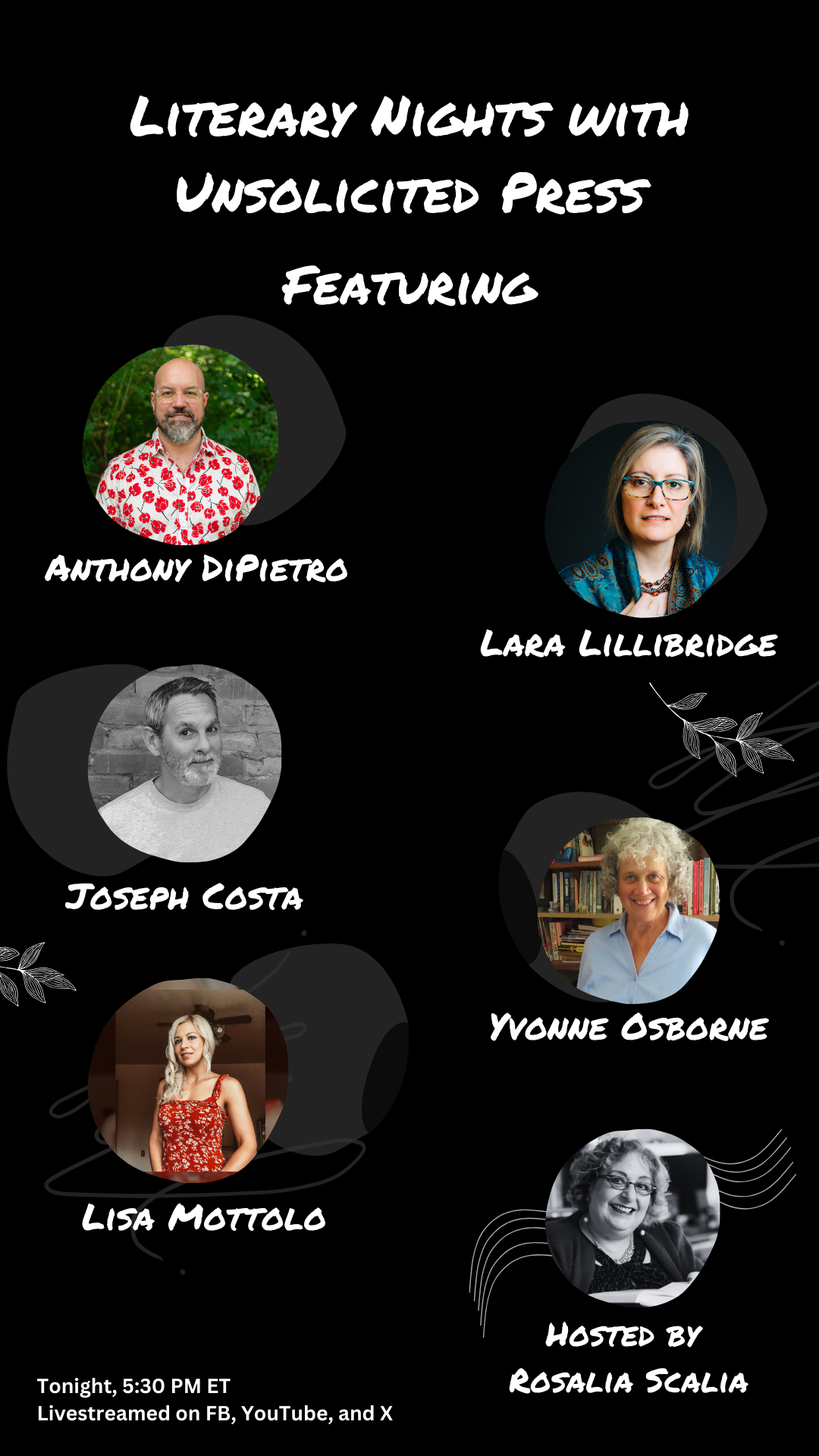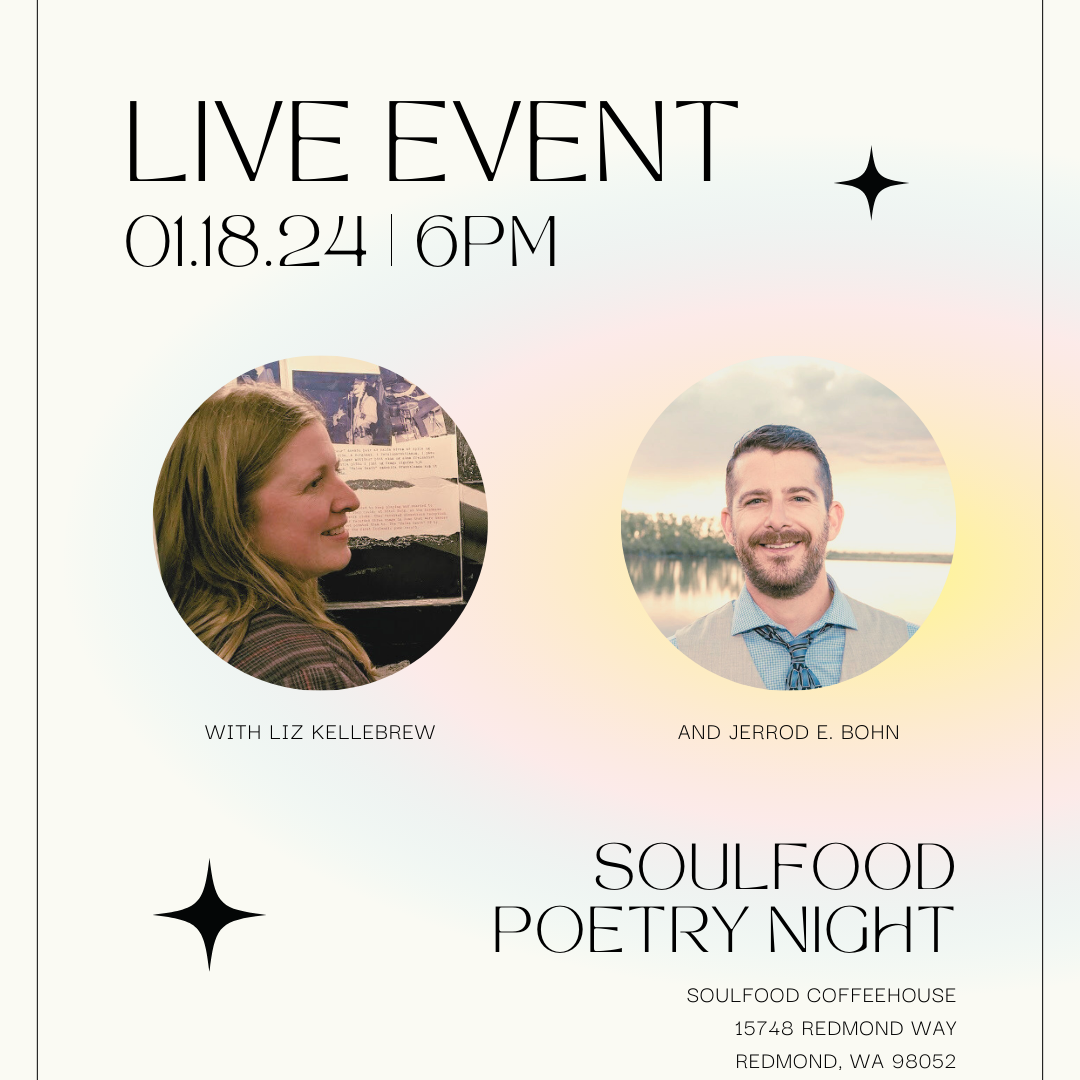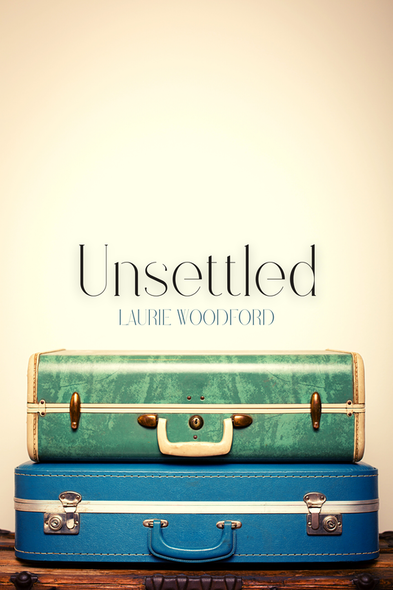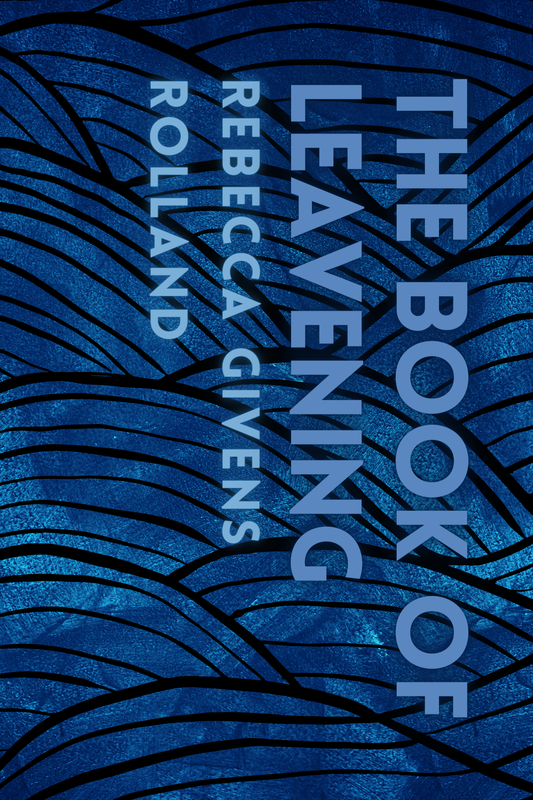Unsolicited Press
Unsolicited Press Proudly Announces the Release of Raki Kopernik's New Novel, The Memory House7/23/2024
Portland, OR—July 23, 2024—Unsolicited Press is thrilled to announce the release of The Memory House, a captivating memoir by Raki Kopernik, available now at Unsolicited Press. The Memory House is a poetic memoir based on stories about the Israeli immigrant experience, ranging from the author's grandparents leaving Eastern Europe during the holocaust, to her parents immigrating from Israel to America in the sixties, and then to her own experiences growing up between Israel and the US in the eighties. The book is bilingual and weaves back and forth through time, crossing cultural lines and making connections with ancestral lineage.
Raki Kopernik, known for her evocative and lyrical prose, crafts a narrative that is both deeply personal and universally resonant. Her characters, each grappling with their own histories and secrets, come alive on the page, drawing readers into a world where the line between the tangible and the ephemeral is beautifully blurred. Critics and early readers have praised The Memory House for its poignant storytelling and emotional depth. Kopernik's ability to capture the complexities of human experience has earned her a place among contemporary literary voices to watch. The Memory House is now available for purchase at Unsolicited Press and wherever fine books are sold. Don't miss the opportunity to immerse yourself in this unforgettable literary journey. For more information or to request a review copy, please contact: Unsolicited Press Email: [email protected] Website: www.unsolicitedpress.com Follow Unsolicited Press on social media for updates on author events, new releases, and more. About Unsolicited Press Unsolicited Press is an independent publisher dedicated to bringing bold and innovative literary voices to the forefront. Our mission is to publish works that challenge, inspire, and resonate with readers from all walks of life. About the Author Raki Kopernik is a Minnesota-based author and poet. Her work has been featured in various literary journals and anthologies. The Memory House is her latest novel, showcasing her talent for weaving intricate narratives that explore the depths of human emotion and experience. PORTLAND, OREGON; JULY 23, 2024--Rest Upon The Flood serves as beacons, each one weaving a narrative, a rhythm, or the mere silhouette of a tale that mirrors the odyssey we all navigate. Appel’s poems delve into the pivotal instances of our existence, uncovering the genuine experiences that shape real lives. Within these traversed routes, and etched into the very fabric of each verse, lies an enduring elegance—a bastion of solace to anchor your spirit and banish desolation.
About the Author After a succession of meaningless jobs (busboy, waiter, camp counselor, etc.), Rich Appel worked in Grey's Ferry in South Philadelphia as a social worker and community organizer for five years, before studying Folklore and Mythology at UCLA. Rich has received three National Endowment for the Humanities Fellowship Awards for Teachers, and worked as an eleventh and twelfth grade English teacher for over thirty years. He also was an adjunct at Delaware County Community College teaching freshman English. He has been writing poetry since undergraduate school at Penn State University, where he first met older, more accomplished writers who never laughed at the bad poetry he’d first written. ABOUT THE PRESS Unsolicited Press strives to produce exceptional works of fiction, nonfiction, and poetry from award-winning authors. Unsolicited Press is based out of Portland, Oregon and focuses on the works of the unsung and underrepresented. As a womxn-owned, all-volunteer small publisher that doesn’t worry about profits as much as championing exceptional literature, we have the privilege of partnering with authors skirting the fringes of the lit world. We’ve worked with emerging and award-winning authors such as Lara Lillibridge, Douglas Cole, Amy Shimshon-Santo, Brook Bhagat, Tara Stillions Whitehead, and John W. Bateman. Learn more at unsolicitedpress.com. Find us on twitter and Instagram, @unsolicitedp. REST UPON THE FLOOD is available on July 23, 2024, as a paperback (108.; 978-1-963115-11-6) and e-book (all major retailers). Retailers, schools, and libraries can order copies through Ingram. The author is open to speaking with the media, holding readings, and engaging in other author opportunities. JULY 9, 2024 -- PORTLAND, OREGON: It’s 1949, the freedom granted women by the Second World War is over, and stifling social conventions are once more at play. Edith Sloan, the rebellious, well-educated heroine of An Open Door returns in The Hedgerow to pursue her dreams of owning a thriving bookstore on Harvard Square and establishing a poetry press to publish the silent and underserved. Free of her dreary marriage to Walter, she receives a proposal from Henry, a wealthy British peer and the man who made the purchase of her bookstore possible. When she accepts, is it from love or gratitude? Will being his wife help or hinder her plans? Edith soon finds herself at the intersection of free expression and censorship. Duty competes with desire, while serious endeavors are undermined by trivial pursuits. As she tries to balance the competing demands in her life, troubling facts from Henry’s past come to light. Edith also discovers that being a pioneer in publishing comes with consequences she hadn’t foreseen. The decade draws to a close and delivers one more surprise Edith must summon extraordinary courage to face.
PRAISE FOR ANNE LEIGH PARRISH'S THE HEDGEROW An elegant, character-driven novel of paradoxes, The Hedgerow reveals universal human truths.--FOREWORD REVIEWS Anne Leigh Parrish’s The Hedgerow, set in 1949, is a tale of disorienting changes in American society and in the personal life of Edith Sloan, the introspective heroine of this marvelous sequel to Parrish’s poignant An Open Door. With a brilliantly-realized metaphor at its heart—Edith, her family, ex-husband, lovers, friends, and associates are a microcosm of America—the novel foreshadows struggles between self-expression and group think, personal identity and conformity, that will characterize the imminent 1950s. Historically perceptive, current as tomorrow’s headlines, The Hedgerow is compelling fiction that crackles with honesty. --Robert Crooke, author of Letting the House Go ABOUT THE AUTHOR Anne Leigh Parrish is the author of fourteen books which include short stories, novels, and poetry. She is passionate about the environment and women’s rights. Recently, she has ventured into the art of photography. Learn more about Anne at www.anneleighparrish and at www.laviniastudios.com. She lives in the South Sound Region of Washington State. ABOUT THE PRESS Unsolicited Press strives to produce exceptional works of fiction, nonfiction, and poetry from award-winning authors. Unsolicited Press is based out of Portland, Oregon and focuses on the works of the unsung and underrepresented. As a womxn-owned, all-volunteer small publisher that doesn’t worry about profits as much as championing exceptional literature, we have the privilege of partnering with authors skirting the fringes of the lit world. We’ve worked with emerging and award-winning authors such as Lara Lillibridge, Douglas Cole, Amy Shimshon-Santo, Brook Bhagat, Tara Stillions Whitehead, and John W. Bateman. Learn more at unsolicitedpress.com. Find us on twitter and Instagram, @unsolicitedp. THE HEDGEROW is available on July 9, 2024, as a paperback (290.; 9781956692990) and e-book (all major retailers). Retailers, schools, and libraries can order copies through Ingram. The author is open to speaking with the media, holding readings, and engaging in other author opportunities (contact Mindbuck Media). Frankly, we had high hopes for the creative nonfiction anthology contest we opened up last year. We received hundreds of submissions— sadly, most of those submissions were clearly recycled (or already published elsewhere) OR had nothing to do with the topic posed. We also received so many that had not undergone editing or polishing. Someone even sent us a submission that was addressed to a cat lovers magazine. The original post is HERE. WHAT DO WE WANT This is the easy part (or maybe the hardest!!!). The theme is that there is no theme. We want essays about writing, writing life, craft, and experiences in the writing world. The only requirement is that they are well-written, researched, and honest. These essays must be original and not previously published (please do not attempt to recycle something and send it to us). We would like essays that are less than 10 pages in length. Please submit it as a Word document or PDF. Before you jump around with glee, please think about what you want to send us. Write something new. Read it. Revise it. Put your name on it (we had at least fifty subs with no identifying information). Maybe even put your email address under your name on the first page. If you know a writer who may be interested in this, tell them about it. We want high-quality pieces. When you are ready, submit HERE. JUNE 11, 2024 -- PORTLAND, OREGON: Thirty-six-year-old Kita Fletcher is fleeing a dead marriage riddled with affairs. After a chance meeting with a small group of people headed to the Rainbow Gathering, she can go her own way or choose to embrace her adventurous spirit that was snuffed out years ago.
After receiving a devastating diagnosis, Maddy Alexander leaves her medical residency and her fiancé behind. Taking only a few belongings—including her beloved guitar—Maddy travels the US trying to live as fully as she can before it’s too late. When she hears about the Rainbow Gathering, she’s intrigued and wants to go, but that dream is crushed when her car breaks down just outside Boulder, Colorado. Twenty-eight-year-old Elaine Kennedy is living her dream life in New York City, far away from her childhood home where she and her mother lived off the grid. When Elaine’s mother dies, those worlds collide when she’s forced to go back home to settle her mom’s affairs. Once there, she’s caught in a battle between everything she loved about her childhood and all the reasons she escaped it. Just shy of his eighteenth birthday, Talon Callahan’s conservative, religious parents are sending him to a conversion program after finding out he’s gay. Tempted to end his life, Talon instead runs away to the Rainbow Gathering. But with Talon’s wealthy father sparing no resources to look for him, Talon is in constant danger, even after he meets Kita, Maddy, and Elaine, three people who would do anything to help him. ALL POINTS OF LIGHT CONVERGE is an interwoven story that explores the internal battles of four strangers drawn to something that may save them from themselves. ABOUT THE AUTHOR Beth Burgmeyer writes fiction and creative nonfiction. Her work has appeared in Ponder Review, The Ocotillo Review, Santa Clara Review, Miracle Monocle, and others. She won first place in the CIBA Somerset Awards for Literary and Contemporary Fiction and was a finalist in the Acacia Fiction Prize. Beth is a mental health counselor specializing in equine assisted psychotherapy. She lives near Des Moines, Iowa with her family and a menagerie of animals. ABOUT THE PRESS Unsolicited Press strives to produce exceptional works of fiction, nonfiction, and poetry from award-winning authors. Unsolicited Press is based out of Portland, Oregon and focuses on the works of the unsung and underrepresented. As a womxn-owned, all-volunteer small publisher that doesn’t worry about profits as much as championing exceptional literature, we have the privilege of partnering with authors skirting the fringes of the lit world. We’ve worked with emerging and award-winning authors such as Lara Lillibridge, Douglas Cole, Amy Shimshon-Santo, Brook Bhagat, Tara Stillions Whitehead, and John W. Bateman. Learn more at unsolicitedpress.com. Find us on twitter and Instagram, @unsolicitedp. ALL POINTS OF LIGHT CONVERGE is available on June 11, 2024, as a paperback (236.; 978-1-963115-16-1) and e-book (all major retailers). Retailers, schools, and libraries can order copies through Ingram. The author is open to speaking with the media, holding readings, and engaging in other author opportunities. JUNE 4, 2024 -- PORTLAND, OREGON: SKULL KINGDOMS: AN IMAGINARY OMBINUS by Matthew Burnside offers us an oblique collection of poetic games complete with explicit instructions on how each piece should be read. A series of meditations on imagining, pretending, unsleeping, dreaming, and, ultimately, escaping by waking unto new selves, Skull Kingdoms is in communion with the vicious, big tent circus that is growing up.
ABOUT THE AUTHOR Matthew Burnside’s forthcoming books include Centrifugal: Unstories (Whiskey Tit) and Skull Kingdoms: An Imaginary Omnibus (Unsolicited Press). He is the author of Wiki of Infinite Sorrows and Postludes (both from KERNPUNKT), Rules to Win the Game (Spuyten Duyvil Press), Dear Wolfmother (Heavy Feather Review), and Meditations of the Nameless Infinite (Robocup Press). He lives in Virginia and teaches at Hollins University. ABOUT THE PRESS Unsolicited Press strives to produce exceptional works of fiction, nonfiction, and poetry from award-winning authors. Unsolicited Press is based out of Portland, Oregon and focuses on the works of the unsung and underrepresented. As a womxn-owned, all-volunteer small publisher that doesn’t worry about profits as much as championing exceptional literature, we have the privilege of partnering with authors skirting the fringes of the lit world. We’ve worked with emerging and award-winning authors such as Lara Lillibridge, Douglas Cole, Amy Shimshon-Santo, Brook Bhagat, Tara Stillions Whitehead, and John W. Bateman. Learn more at unsolicitedpress.com. Find us on twitter and Instagram, @unsolicitedp. SKULL KINGDOMS: AN IMAGINARY OMBINUS is available on June 4, 2024, as a paperback (80.; 978-1-963115-02-4) and e-book (all major retailers). Retailers, schools, and libraries can order copies through Ingram. The author is open to speaking with the media, holding readings, and engaging in other author opportunities. MAY 14, 2024 -- PORTLAND, OREGON: How to Do the Greased Wombat Slide by Pamela Miller will dance poetry lovers away to places you never knew poems could go. This fifth collection from Chicago poet Pamela Miller (author of Recipe for Disaster and Miss Unthinkable) is a constantly surprising jamboree of surreal situations (“She has teeth inside her teeth inside her teeth”), wildly inventive wordplay (“We’re the muck-it-up bungle-thumbs failure brigade”), and zany humor (“When the going gets tough, the tough yell “FOGHORN!”). Yet as poet Ralph Hamilton (Teaching a Man to Unstick His Tail) says, “Beneath their surface pleasures, these poems resonate with Miller’s generous and exuberant delight in our weird and wounded humanity.”
Praise for HOW TO DO THE GREASED WOMBAT SLIDE I’m in love all over again with Miller’s hilarity, language, unexpected images, and harrowing encounters with deep, dark reality, its caverns and tunnels illuminated by the headlamp on her hardhat. This poet of wild and precise images takes abstractions and folds them up into a jillion origami frogs to set in a circle around a shimmering pond and kiss, one by one. —Kathleen Kirk, Prick of the Spindle I’ve lost all interest in contemporary poetry except for the poems of Pamela Miller, who continues unabashedly to write beautifully and jarringly and murderously, “like a cloud of exuberant perfume.” Her trenchant invention never fails to incite my blood and excite my brain and nerves. Time after time, poem after poem, she just kills it. Her new book How to Do the Greased Wombat Slide has more great lines in it than any book since The Marriage of Heaven and Hell by William Blake. To wit: “I’m sick of all these poems / that read like walnuts with mayonnaise inside.” “O fie on your edited abandon, you poets!” “At school I was voted / Most Likely to Evaporate.” “You’re too toxic for my toboggan.” “Pay no attention to Death in his inevitable galoshes.” To paraphrase Samuel Johnson on the poetry of Alexander Pope, “If this isn’t poetry, then nothing is poetry, dammit.” —Bill Yarrow, author of Blasphemer and The Vig of Love If you fancy poems that merely “wash life’s windshield,” Pamela Miller’s new book may perplex. But if instead you long for poetry “that makes Gaudí’s towers swoon, / then claw the sky wide open,” then you have found your muse! By turns playful and eviscerating, hilarious and discomfiting, deeply perceptive and wryly discombobulating, How to Do the Greased Wombat Slide is the perfect book for our strange and trying times. Miller’s poems locate and dislocate our mortality, our lust, our fears, our stale sense of reality, with a hobgoblin of new images and keen insight. Beneath their surface pleasures, these poems resonate with the poet’s generous and exuberant delight in our weird and wounded humanity. Bless her! —Ralph Hamilton, author of Teaching a Man to Unstick His Tail About the Author Pamela Miller has been gleefully embroidering the fringes of Chicago’s poetry scene for more than 40 years. She is the author of five other books: Fast Little Shoes (Erie Street Press), Mysterious Coleslaw (Ridgeway Press), Recipe for Disaster and Miss Unthinkable (both from Mayapple Press), and Mr. Mischief (dancing girl press). Her poems have appeared in many print and online journals, including The Paris Review, RHINO, BlazeVOX, Otoliths, Nixes Mate Review, Wicked Alice, The MacGuffin, and the late, great Free Lunch, and in the anthologies New Poetry From the Midwest, How to Read a Poem, The Great American Poetry Show 2, and Circe’s Lament: Anthology of Wild Women Poetry. She has performed her work at readings in Chicago, New York, San Francisco, Detroit, and elsewhere. Ms. Miller has been nominated for the Pushcart Prize either five or six times (she’s lost count). After a frenetic 36-year career slinging content for various public relations, marketing communications, editing, publishing, and freelance writing jobs, she now lives in blissful retirement with her husband, science fiction writer Richard Chwedyk. About the Press Unsolicited Press strives to produce exceptional works of fiction, nonfiction, and poetry from award-winning authors. Unsolicited Press is based out of Portland, Oregon and focuses on the works of the unsung and underrepresented. As a womxn-owned, all-volunteer small publisher that doesn’t worry about profits as much as championing exceptional literature, we have the privilege of partnering with authors skirting the fringes of the lit world. We’ve worked with emerging and award-winning authors such as Douglas Cole, Amy Shimshon-Santo, Brook Bhagat, Tara Stillions Whitehead, and John W. Bateman. Learn more at unsolicitedpress.com. Find us on twitter and Instagram, @unsolicitedp. HOW TO DO THE GREASED WOMBAT SLIDE is available on May 14, 2024, as a paperback (80p.; 9781963115994) and e-book (all major retailers). Retailers, schools, and libraries can order copies through Ingram. The author is open to speaking with the media, holding readings, and engaging in other author opportunities. MAY 7, 2024 -- PORTLAND, OREGON: THIS KIND OF MAN offers an unvarnished look at life in 21st Century America, excavating the complicated, tender, wild truth of what it is to be a man across generations and relationships.
These stories interrogate the pressures and tensions of contemporary life, and the ways men grapple with them, often without success. Issues such as marriage, fatherhood, aggression, alcoholism, gender expectations, generational backlash, and the inexorable dread of death, abound. Many of these stories live within a slow implosion of coping, and often failing, as well as those who refuse to succumb, addressing concerns oft-discussed, or not discussed enough, in mainstream print: gun violence, the recent history of coal country Appalachia, sports-related concussions, illegal immigration (and the jobs many of these ostensibly unwelcome folks are obliged to do), homelessness, and the inability of men to honestly connect or communicate. Far from excusing or exonerating toxic males, this collection locates their violence (toward others, against oneself) in the context of a deadening culture and the false narratives that prevail in an exploitative, zero-sum game capitalist model, where those without are encouraged to quarrel with similarly overworked and underpaid, mostly blue-collar workers. We see that our received notions of manhood and masculinity are inculcated—from the beginning and by design—to ensure willing participation in a system where the overwhelming majority are excluded from the start. We witness the way these dysfunctions are handed down like inheritance, and how every cliché, from fighting to drinking to intolerance of dissent and distrust of others, is a carefully constructed trap, preventing solidarity, empathy, and love (for others, for one’s self). Praise for THIS KIND OF MAN This Kind of Man, a suite of dramatic monologues and meditations, seems to pick up where Raymond Carver left off: anatomizing all the ways that American masculinity finds itself adrift, with a special thought for the women in the same lifeboat. Murphy sees how we live so plainly and clearly that, in the best possible way, it hurts. —Louis Bayard, author of The Pale Blue Eye The stories in Sean Murphy’s extraordinary collection This Kind of Man are swift, sharp, sometimes harsh, often sad, but so absolutely, transcendentally honest that the final effect is thrilling, a form of liberation. I know of no other eulogy for the post-war American male that so deftly captures the mingled love and anger of fathers and sons. —Robert Anthony Siegel, author of Criminals: My Family’s Life on Both Sides of the Law In This Kind of Man, Sean Murphy excavates the complicated, tender, wild truth of what it is to be a man across generations and relationships. His wistful, funny, precise honesty lights up the page and helps the reader see the complexity of the filter of maleness. An insightful and necessary book. —Karen E. Bender, author of Refund, Finalist 2015 National Book Award With its refreshing vulnerability, frankness, and insights, This Kind of Man fills a void in our literary landscape by artfully capturing both the tender and tormented sides of masculinity. Sean Murphy’s courageous stories do what groundbreaking literature should do—simultaneously comfort and disturb its readers. This is an important, indispensable read for our times. —Whitney Collins, author of Big Bad and Ricky & Other Love Stories Twenty-first-century manhood is a minefield – a terrain riddled with hidden dangers. A wrong word, a long-held grudge, even a mistimed joke can easily end in disaster. Traversing such explosive territory requires tremendous skill, a bucketful of courage, and no small amount of humor. Sean Murphy’s This Kind of Man has all three, in spades. —David McGlynn, author of One Day You’ll Thank Me: Lessons from an Unexpected Fatherhood This Kind of Man examines the moving target of modern masculinity and asks, from multiple angles, What is a man? The discourse around this question has been shockingly absent from the literary landscape, whether due to a lack of bravery or a certain paralysis that accompanies such an inquiry. Yet Murphy dives in head-first, offering stories that explore marriage, fatherhood, aggression, alcoholism, gender expectations, generational backlash, and more with nuance, humor, and an abundance of truth. His prose thrillingly invites us to think deeply. Instead of hiding from what it means to be a man today, he gives us a broad canvas from which to take in the answers, plural, to this essential question. —Cheryl Della Pietra, author of Gonzo Girl From yearnings never expressed by “strong and silent” types to competitive father/son relationships, veteran misogynists and burgeoning incels, Murphy’s new collection looks straight at the worst traits of the white American male with a view to the future where these men can do better, be better, think beyond themselves. A timely, gripping read by a courageous writer. —Courtney Maum, author of The Year of the Horses About the Author Sean Murphy is founder of the non-profit 1455 Lit Arts, and directs the Storytelling Initiative at Shenandoah University. He has appeared on NPR's "All Things Considered" and been quoted in USA Today, The New York Times, The Huffington Post, and AdAge. A long-time columnist for PopMatters, his work has also appeared in Salon, The Village Voice, Washington City Paper, The Good Men Project, Sequestrum, Blue Mountain Review, and others. His chapbook, The Blackened Blues, was published by Finishing Line Press in 2021. His second collection of poems, Rhapsodies in Blue was published by Kelsay Books in 2023. His third collection, Kinds of Blue, and This Kind of Man, his first collection of short fiction, are forthcoming in 2024. He has been nominated four times for the Pushcart Prize, twice for Best of Net, and his book Please Talk about Me When I'm Gone was the winner of Memoir Magazine's 2022 Memoir Prize. To learn more, and read his published short fiction, poetry, and criticism, please visit seanmurphy.net/ and @bullmurph. ABOUT THE PRESS Unsolicited Press strives to produce exceptional works of fiction, nonfiction, and poetry from award-winning authors. Unsolicited Press is based out of Portland, Oregon and focuses on the works of the unsung and underrepresented. As a womxn-owned, all-volunteer small publisher that doesn’t worry about profits as much as championing exceptional literature, we have the privilege of partnering with authors skirting the fringes of the lit world. We’ve worked with emerging and award-winning authors such as Douglas Cole, Amy Shimshon-Santo, Brook Bhagat, Tara Stillions Whitehead, and John W. Bateman. Learn more at unsolicitedpress.com. Find us on twitter and Instagram, @unsolicitedp. THIS KIND OF MAN is available on May 7, 2024, as a paperback (252p.; 978-1-963115-15-4) and e-book (all major retailers). Retailers, schools, and libraries can order copies through Ingram. The author is open to speaking with the media, holding readings, and engaging in other author opportunities. Happy National Poetry Month--We Need Your Support More Than Ever Before by Unsolicited Press Read on Substack
If you could cook dinner for any author, dead or alive, who would it be? What would you make?
Stephen King, and I would make blood pudding. Just kidding! During a two-week trip to England, that was the only thing I tried that I didn’t like. For Stephen King I would make Puttanesca, Italian style spaghetti that's fast and easy (so there’s time to discuss killing my darlings with no remorse) made with anchovies, garlic, and mixed olives, served with a salad of mixed greens tossed with a date vinaigrette and a robust burgundy. For dessert we would have Galette Au Chocolat. What scares you the most about the writing process? How do you combat your fears? Three things: rejection, critical reviews, and having to read in front of people. The only way to combat rejection is to plow ahead– “Drive your plow over the bones of the dead” to quote the suspense thriller by Olga Tokarczuk. I’m not sure how to combat fear of public speaking, but with my upcoming book signings, I’m going with wine and dark chocolate. As for the fear of critics and bad reviews? To quote C.N. Bovee, “There is probably no hell for authors in the next world—they suffer so much from critics and publishers in this one.” We all get bad reviews, there’s no pleasing everyone if you are to write anything of value, so I remind myself, writers have the last word. As Tennessee Williams more eloquently said: “The best thing you can do about critics is never say a word. In the end you have the last say, and they know it.” Who is your biggest literary crush, author or character? This is a great question. After giving it some thought, I’d have to say Alessandro in Ramona--stoic, handsome, and tender yet brave-- the novel by Helen Hunt Jackson to protest the mistreatment of Native Americans. This tragic tale is still the only novel that made me weep. What books are on your nightstand? Heaven and Earth Grocery Store by James McBride, Eastbound, an intriguing novella by Maylis de Kerangal, and Wager by David Grann. Favorite punctuation mark? Why? The em dash. Because it interrupts politely yet firmly and demands the writer pay attention to what is “in between”. It’s better than sluggish semicolons and nondescript parenthesis. What book were you supposed to read in high school, but never did? I read everything I was supposed to and some I wasn’t supposed to. Does writing energize or exhaust you? Absolutely energizes. When I’m deep in the throes of my character’s lives, I’m more alive than when in my own middling one, and as a consequence, serves to make me a happier--more interesting?-- person. What are common traps for aspiring writers? Too much advice. Too many writing workshops, trying to follow the current rage or mirror the writings of a favorite author. Wrong wrong wrong! Find your own voice, let yourself fall into the “zone” and once you’re there, don’t stop. Never stop until you know what’s going to happen next. Do you think someone could be a writer if they don’t feel emotions strongly? Sure they could write about a sociopath. Seriously, it would be hard to write point-of-view with agency if you don’t feel emotion strongly. Can one train themself to feel emotion strongly? Put themself in another’s shoes with honesty and empathy? Isn’t that what writers have to do? I see I’ve answered a question with a question. What other authors are you friends with, and how do they help you become a better writer? Creative writing teacher and poet, Cathryn Essinger, because she encouraged me to write a short story and then to keep going until it snowballed into a novel which birthed another, and then another. Also, fellow author, MJ Werthman White who I’ve recently become acquainted with through mutual friend, Essinger. MJ has generously shared her marketing tips with me for that which none of us wants to do, but must. Finally, I would be remiss if I didn’t mention my daughter, Melissa, my most faithful reader and editor. She makes me “kill my darlings” with ruthless efficacy, and would give Stephen King a run for his money. A writer from the third grade, Melissa has more ideas for novels and works in progress than I have teeth. And I have all of them. What was an early experience where you learned that language had power? When the teacher in our one-room schoolhouse read aloud from Island Of The Blue Dolphins. It was the only time that even the boys were quiet. For myself, as a young girl in an isolated rural community where the highlight of the school year was the arrival of the bookmobile, the story of this young girl’s survival when stranded on an island all alone was captivating. What’s your favorite under-appreciated novel? Carson McCullers “The Heart Is A Lonely Hunter”. "We are all broken, that's how the light gets in." What stood out for me and still remains in my heart is how, at the end of the novel, the young girl, Mick, with a passion for music, has to give up her dream of getting a piano and taking music lessons to go to work full time at a soul-sucking job to help support her family. It’s sad because she just gives in. Loses her spunk. The universal message-- creative enterprise rarely supports the artist, so it is difficult to follow your dream, even if you live frugally. As a writer, what would you choose as your mascot/avatar/spirit animal? An owl. Because their voice is unique and haunting, and they fly by night and roost in warm haymows by day, and everyone loves them. What do you owe the real people upon whom you base your characters? I owe them a thank-you for letting me eavesdrop and for doing stupid shit I can fictionalize. Seriously, for the most part, my characters and their flaws are products of my imagination, and making up shit is what I do best. How many unpublished and half-finished books do you have? Four. A Vietnam Era love story I’ve worked on for so long it has become Historical, a contemporary novel of strife in farm country. “Anyone can be good in the country; there are no temptations there,” which is a loose sequel to the Vietnam one, an unfinished memoir, and a work-in-progress involving the catastrophic die-off of amphibians, the biologist who lives in the woods to figure out why, and a reporter who only wants a story but instead gets a second chance at love. What does literary success look like to you? Having an ISBN number. An agent at a writer’s conference I once attended told the participants that manuscripts are not books. “Your manuscript is not a book,” she said adamantly, “until you have an ISBN number.” That stuck with me, so when I first saw that number appended to the publisher’s marketing data I knew I had a book. It was a huge Ah-ha moment, a badge of authenticity. What’s the best way to market your books? I believe word of mouth is still the best marketing tool. But it takes a while to get beyond your immediate circle of family and friends. In the interim, Amazon can’t be ignored for its breadth and reach, but Amazon clashes with the core values of independent booksellers who support authors, readers, and their communities. They, along with libraries, are the champions of authors. From my small local Brown City Library to the New York Public Library, libraries have but one mission– to make as many books available to as many people as possible. They are a refuge for inquisitive minds and soaring imaginations. Many libraries also have local author collections. So, short answer--libraries and indie bookshops. What’s the most difficult thing about writing characters from the opposite sex? I don’t find it hard at all. Men are easy to read. I love them, I watch them and listen to them, and I’m intuitive enough to see through them to know what they really want. What did you edit out of this book? A sex scene. Because I think one good sex scene is all you need unless you are a romance author and then you need one in every chapter. If you didn’t write, what would you do? I would work on a tree farm or in a vineyard and stomp grapes or pick apples, press cider, and dabble with fermentation. APRIL 2, 2024 -- PORTLAND, OREGON: After her mother is killed in a rogue Northern Michigan tornado, Sadie Wixom is left with only her father and grandfather to guide her through the pitfalls of young adulthood.
Hundreds of miles away in western Saskatchewan, Stefan Montegrand and his Indigenous family are forced off their land by multinational energy companies and flawed treaties. They are taken in temporarily by Sadie’s aunt, a human rights activist who heads a cultural exchange program. Stefan, whose own father died in prison while on a hunger strike, promptly runs afoul of local authority, but Sadie, intrigued by him and captivated by his story, has grown sympathetic to his cause and complicit in his pushback against prejudiced accusations. Their mutual attraction and struggle for equilibrium is stymied when Stefan’s older brother, Joachim, who stayed behind, becomes embroiled in the resistance, and Stefan is compelled to return to Canada. Sadie, concerned for his safety, impulsively follows on a trajectory doomed by cultural misunderstanding and oncoming winter. Let Evening Come is the love story between the son of an Indigenous family displaced from their ancestral home on the Tar Sands of Canada and a motherless farm girl from Michigan. Together they combat suspicion and bigotry on both sides of the border and the cultural differences that separate them. Praise for LET EVENING COME Author Yvonne Osborne has crafted a truly emotionally resonant novel that delves into themes of loss, displacement, and cultural conflict. The up-close and detailed portrayal of Sadie and Stefan's budding romance against the backdrop of their respective struggles was both captivating and poignant. I loved the way their unique dialogue was presented and readers will feel the dynamics between the lines. The exploration of cultural misunderstanding and the challenges faced by Indigenous communities was an incredibly poignant touch that is really focused on and never used as a gimmick, fostering genuine empathy and understanding. As the characters navigated adversity and sought connection across borders, I found myself deeply invested in their journey, rooting for their love to transcend the obstacles in their path. Overall, Let Evening Come is a recommended read and a compelling tale of love, resilience, and the human capacity to overcome adversity amidst cultural divides. --Reviewed by K.C. Finn for Readers’ Favorite About the Author Yvonne Osborne is a 5th generation Michigander who grew up on the family farm under the tutelage of a grandmother who loved Shakespeare before Shakespeare was cool. After college and a stint in the Buckeye State, she and her husband moved back to the farm founded by her great-great-grandfather. Her poetry and short stories can be found in The Slippery Elm Literary Journal, Flapper Press, Third Coast Review, Full of Crow, Midwest Review, Great Lakes Review, and in various anthologies. Let Evening Come is her debut novel. For more, visit her at yvonneosborne.com ABOUT THE PRESS Unsolicited Press strives to produce exceptional works of fiction, nonfiction, and poetry from award-winning authors. Unsolicited Press is based out of Portland, Oregon and focuses on the works of the unsung and underrepresented. As a womxn-owned, all-volunteer small publisher that doesn’t worry about profits as much as championing exceptional literature, we have the privilege of partnering with authors skirting the fringes of the lit world. We’ve worked with emerging and award-winning authors such as Lara Lillibridge, Douglas Cole, Amy Shimshon-Santo, Brook Bhagat, Tara Stillions Whitehead, and John W. Bateman. Learn more at unsolicitedpress.com. Find us on twitter and Instagram, @unsolicitedp. LET EVENING COME is available on April 2, 2024, as a paperback (386p.; 978-1-963115-52-9) and e-book (all major retailers). Retailers, schools, and libraries can order copies through Ingram. The author is open to speaking with the media, holding readings, and engaging in other author opportunities. Unsolicited Press Releases Lara Lillibridge's Essay Collection, "The Truth About Unringing Phones"3/5/2024
MARCH 5, 2024 -- PORTLAND, OREGON: The Truth About Unringing Phones: Essays on Yearning is an exploration of responsibility and culpability told in experimental and fragmented essays.
When she was four years old Lara’s father moved from Rochester, New York, to Anchorage, Alaska, a distance of over 4,000 miles. She spent her childhood chasing after him, flying a quarter of the way around the world to tug at the hem of his jacket. When he did turn his attention on her, sometimes his gaze lingered inappropriately. Clothing and personal boundaries were optional in his overtly sexual household. As Lillibridge aged, her adoration of her father and longing for him was layered over with anger, revulsion, and later pity like a hand-dipped candle, these new emotions fusing with, but not replacing the always present yearning. Now that her father is in his eighties, dementia comes and goes and stays longer each time. He is a lonely old man and while society says Lillibridge should be a dutiful daughter, the only way she has survived her father was to cut herself off from him, having only the most superficial of interactions. In this collection she grapples with responsibility versus self-preservation. Praise for The Truth About Unringing Phones "The Truth About Unringing Phones is an exploration of yearning, of guilt, of unfulfilled wishes, of regrets, past and present, but more than these things, it is a quiet prayer for peace in a tumultuous relationship between a daughter and her father. The main characters are complex, contradictory, and vulnerable in their alone-ness and connections to themselves and each other. Lillibridge has woven a deeply moving assemblage of memories, each shining light into the quagmire of family." –Kao Kalia Yang, author of The Song Poet: a Memoir of my Father "The Truth About Unringing Phones is heartbreakingly beautiful. Full of both darkness and light, Lara Lillibridge honors both the full weight of her love for her father and the complicated, and often painful, foundation on which that love, and all the memories surrounding it, was built."–Athena Dixon, author of The Loneliness Files "What a beautiful thing to take the ugly messiness of family and make of it a search for solace. Much like the way memory works, these fragments and pieces and shells trace the history and frustration of an estranged father-daughter relationship. They tell a story of longing, and loss. Of where love goes when it gets lost itself. They tell a story as old as time, or the day the first daughter was born and the first father came into being." –Paul Creshaw, author of Melt with Me: Coming of Age and Other ’80s Perils and Pushcart Prize Recipient 2017. "With admirable courage and raw candor, Lara Lillibridge chronicles the wrenching paradoxes that shaped her complicated relationship with her father in this stunning collection. The story's unconventional narrative structure that pairs long-form essay with searing, fragmented vignettes which mirror Lillibridge's journey to piece together the problematic dimensions of her absentee and neglectful father and to understand her place as daughter within that landscape. The Truth About Unringing Phones exemplifies how, amidst the heartbreak, threads of compassion, love, and grace can still be woven into the fabric of our most difficult relationships." —Melanie Brooks, author of A Hard Silence and Writing Hard Stories About the Author Lara Lillibridge (she/they) is the author of Mama, Mama, Only Mama (Skyhorse, 2019), Girlish: Growing Up in a Lesbian Home (Skyhorse, 2018), and co-editor of the anthology, Feminine Rising: Voices of Power and Invisibility (Cynren Press, 2019). Lillibridge is the Interviews Editor at Hippocampus Magazine and currently serves as a mentor for AWP’s Writer to Writer program. Lara graduated from West Virginia Wesleyan College’s MFA program in Creative Nonfiction. In 2016 she won Slippery Elm Literary Journal’s Prose Contest, and The American Literary Review's Contest in Nonfiction. ABOUT THE PRESS Unsolicited Press strives to produce exceptional works of fiction, nonfiction, and poetry from award-winning authors. Unsolicited Press is based out of Portland, Oregon and focuses on the works of the unsung and underrepresented. As a womxn-owned, all-volunteer small publisher that doesn’t worry about profits as much as championing exceptional literature, we have the privilege of partnering with authors skirting the fringes of the lit world. We’ve worked with emerging and award-winning authors such as Douglas Cole, Amy Shimshon-Santo, Brook Bhagat, Tara Stillions Whitehead, and John W. Bateman. Learn more at unsolicitedpress.com. Find us on twitter and Instagram, @unsolicitedp. The Truth About Unringing Phones is available on March 5, 2024, as a paperback (242p.; 9781956692778) and e-book (all major retailers). Retailers, schools, and libraries can order copies through Ingram. The author is open to speaking with the media, holding readings, and engaging in other author opportunities. You all know we have been ramping up what's coming next year, and now we can officially say we have a roster.
We will be unveiling more about this in our March Substack newsletter, so don't forget to subscribe. 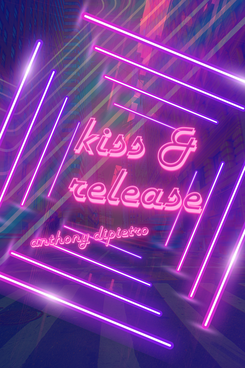 A meditation in a rush, kiss & release is driven by the intense voice of an observant, insistent & emotional “I.” He’s an urban gay man who admits he’s here with a date, but you never know how the night will end. He has several loves, at least a few fuckboys, and many questions: most spells are made with words & broken by a kiss, why not the other way around? what is more intimate than a whisper? how long will yr wife be gone? Have you ever noticed it? asks “Love Is Finished Again,” a poem cycle revealed in seven movements. The sequence muses on how we end up in the same place over & over in sex & love & everything. The only real change is through decay that makes ruins, noseless busts, caves of Pompeii, brothel rooms. Even language & communication decay, as a number of mashup and collaborative poems explore. Are you ready for the beats? This book is a party and a romance. It’s a lucid dream. This poetry accuses, brags, confesses, obsesses, panics & promises. It discos, raves & swings. It falls in love during a hookup but gets bored at a four-way. It woos the Zodiac; tries to get its virginity back; invents sex as a religion, mythologizes masculinity & succumbs to its devils; kills a snake to resurrect a lover; gives a blowjob at a dirty book store; goes to see bad performance art; looks for love & finds it everywhere/wherever. PRAISE FOR KISS & RELEASE "God, Anthony DiPietro’s poetry is good. I’m supposed to write a blurb, and there’s a formula for that, but I’m sitting here reading, and I’m electric about what I’m reading. Not intrigued in that academic kind of way, though these poems are certainly well-crafted. I’m excited in a way that makes me remember what it was like when I’d find a book as a teenager, something dangerous and contraband, something so much a lifeline, and it would speak to all those hidden parts of me with a rush of sexuality and exposure, a mirror and a flashlight. But I’m not a teenager anymore. I’m a grown man who has somehow survived and touched and loved and screwed, and these poems uncorked the bottle and let all those rowdy spirits out. This book - these poems - these feelings - are why I love poetry, why I need poetry, why poetry saved my life - and why it’s still reminding me how to be alive. Forget the formula. This is me, a reader, praising the poetry gods and angels that this book exists, for me, and for everyone who came before and will come after." --Bryan Borland, founding publisher of Sibling Rivalry Press "Anthony DiPietro’s kiss & release is a pleasurable, lovable book about love and pleasure. DiPietro’s approach to these poems, even to poems of grief and heartache, is endlessly playful, darkhearted, lighthearted, and resplendent with anti-heroic wit and sex that charms and stings. The delight of this text does not diminish its formal and literary acumen. There are references to Baldwin, Flannery O’Connor, Pasolini, Plath, and Marie Howe, all ribboned-through with music—pop, classical, hip hop, country—and although DiPietro makes ample use of the prose poem, there is also a sestina, a villanelle, a pop cento, an abecedarian, a sequence, and a poem arrived at via predictive text. I tell you, this collection is a romp and a grand buffet, a paean to the urban masq, the fuckboy, and hot, thriving, fleeting love." --Diane Seuss, author of frank: sonnets ABOUT THE AUTHOR Anthony DiPietro is a gay sex poet and arts administrator originally from Providence, Rhode Island. He has lived throughout New England and in California, New York, Oregon, and Tennessee. A graduate of Brown University with honors in creative writing, he also earned a creative writing MFA at Stony Brook University. Now deputy director of Rose Art Museum at Brandeis University, he resides in Worcester, MA. He composed his 2021 chapbook And Walk Through (Seven Kitchens Press) on a typewriter during the pandemic lockdowns. kiss & release is his debut collection. His writing and readings are featured on his website, www.AnthonyWriter.com. ABOUT THE PRESS Unsolicited Press strives to produce exceptional works of fiction, nonfiction, and poetry from award-winning authors. Unsolicited Press is based out of Portland, Oregon and focuses on the works of the unsung and underrepresented. As a womxn-owned, all-volunteer small publisher that doesn’t worry about profits as much as championing exceptional literature, we have the privilege of partnering with authors skirting the fringes of the lit world. We’ve worked with emerging and award-winning authors such as Douglas Cole, Amy Shimshon-Santo, Brook Bhagat, Tara Stillions Whitehead, and John W. Bateman. Learn more at unsolicitedpress.com. Find us on twitter and Instagram, @unsolicitedp. KISS & RELEASE is available on February 13, 2024, as a paperback (128.; 978-1-956692-87-7) and e-book (all major retailers). Retailers, schools, and libraries can order copies through Ingram. The author is open to speaking with the media, holding readings, and engaging in other author opportunities. 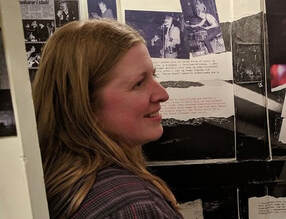 Liz Kellebrew’s first full-length poetry collection is Water Signs. The River People and Cloistered are forthcoming from Unsolicited Press. Her MFA in creative writing is from Goddard College. Liz’s essays, poems, and short stories have been published in About Place, Catamaran, and The Conium Review. She received the Miracle Monocle Award for Innovative Writing and was a finalist for the Calvino Prize. Liz is a lifelong resident of the Pacific Northwest. Visit https://lizkellebrew.com/. 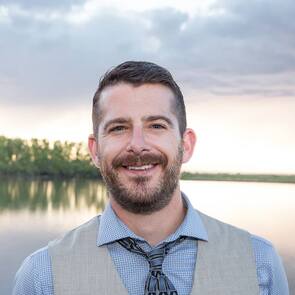 Jerrod E. Bohn is the author of three full-length poetry books, Animal Histories (2017), Pulp: A Manifesto (2018), and Ventric(L)e (2023), from Unsolicited Press. His poetry and nonfiction have appeared most recently in Redivider and Matter Monthly. He is a graduate of Colorado State University’s MFA program. Jerrod is an English professor at Edmonds College and freelance music writer for Bandbox Vinyl Record Club. He curates Gravel, an on-again, off-again brewery reading series. JANUARY 2, 2024-- We're proud to present UNSETTLED by Laurie Woodford. At the age of forty-nine, driven by an urgent restlessness, Laurie Woodford rents out her house, packs her belongings into two suitcases, and relocates to Asia. What begins as an opportunity to teach college English overseas, evolves into a nomadic adventure as Laurie works and volunteers in South Korea, Ethiopia, Peru, Spain, and Mexico. After four years of traveling, Laurie’s return “home” to the U.S. becomes an unexpected adventure of its own when she ends up in Arkansas and meets Bruce, a bird-loving, bearded Quaker, who challenges her to reconcile her life of fierce independence with her longing to feel settled and loved.
About the Author Laurie Woodford is a memoirist, fiction writer, and essayist whose work has appeared in The Antioch Review, The Chattahoochee Review, The Minnesota Review, Little Patuxent Review and Catamaran. For over twenty years, she taught English to college students in the U.S., South Korea, and China. She holds an MFA from Queens University of Charlotte. Originally from upstate New York, Laurie now lives with her amazing husband, Bruce, and wonder dog, Journey, in the outskirts of Austin, Texas. For more, visit her at www.lauriewoodford.com. ABOUT THE PRESS Unsolicited Press strives to produce exceptional works of fiction, nonfiction, and poetry from award-winning authors. Unsolicited Press is based out of Portland, Oregon and focuses on the works of the unsung and underrepresented. As a womxn-owned, all-volunteer small publisher that doesn’t worry about profits as much as championing exceptional literature, we have the privilege of partnering with authors skirting the fringes of the lit world. We’ve worked with emerging and award-winning authors such as Shann Ray, Amy Shimshon-Santo, Brook Bhagat, Kris Amos, and John W. Bateman. Learn more at unsolicitedpress.com. Find us on twitter and Instagram, @unsolicitedp. UNSETTLED is available on January 2, 2024 as a paperback and e-book (all major retailers). Retailers, schools, and libraries can order copies through Ingram. The author is open to speaking with the media, holding readings, and engaging in other author opportunities.
We are starting a new reading, and good gracious, technology can be a pest. For our first livestream attempt, we failed to stream it. BUT, you can still watch it!
Our newest series, LITERARY NIGHTS WITH UNSOLICITED PRESS is hosted by the charismatic Rosalia Scalia. On most Wednesdays, Scalia will be hosting 1-4 authors reading from their books. These readings will be livestreamed on YouTube and some social media outlets (if we can ever figure it out!). On December 13th, 2023, Scalia hosted a reading with Katie Holtmeyer and Laurie Woodford. Katie Holtmeyer lives, writes, and teaches in Missouri. She is a pushcart-nominated author, and her poetry has appeared in Vast Chasm, Stanchion Zine, and The Shore, among others. You can find more of her work at katieholtmeyer.com. Her poetry collection, She Asked Me Where, explores the various ways in which the demons, darkness, and pain, both of ourselves and of others, manifest in our lives. It captures the pull of several spectrums innate to the human experience: pain and triumph, fear and power, longing and overcoming, the perfect and the flawed. This collection approaches the liminal spaces of these binaries through recurring themes that are connected in their struggle for control and understanding over what cannot be controlled or understood. Laurie Woodford is a memoirist, fiction writer, and essayist whose work has appeared in The Antioch Review, The Chattahoochee Review, The Minnesota Review, Little Patuxent Review and Catamaran. For over twenty years, she taught English to college students in the U.S., South Korea, and China. She holds an MFA from Queens University of Charlotte. Originally from upstate New York, Laurie now lives with her amazing husband, Bruce, and wonder dog, Journey, in the outskirts of Austin, Texas. For more, visit her at www.lauriewoodford.com. Her memoir, UNSETTLED, is a stunning account of travel and learning about the human condition. At the age of forty-nine, driven by an urgent restlessness, Laurie Woodford rents out her house, packs her belongings into two suitcases, and relocates to Asia. What begins as an opportunity to teach college English overseas, evolves into a nomadic adventure as Laurie works and volunteers in South Korea, Ethiopia, Peru, Spain, and Mexico. After four years of traveling, Laurie’s return “home” to the U.S. becomes an unexpected adventure of its own when she ends up in Arkansas and meets Bruce, a bird-loving, bearded Quaker, who challenges her to reconcile her life of fierce independence with her longing to feel settled and loved. Laurie Woodford is a memoirist, fiction writer, and essayist whose work has appeared in The Antioch Review, The Chattahoochee Review, The Minnesota Review, Little Patuxent Review and Catamaran. For over twenty years, she taught English to college students in the U.S., South Korea, and China. She holds an MFA from Queens University of Charlotte. Originally from upstate New York, Laurie now lives with her amazing husband, Bruce, and wonder dog, Journey, in the outskirts of Austin, Texas. For more, visit her at www.lauriewoodford.com. 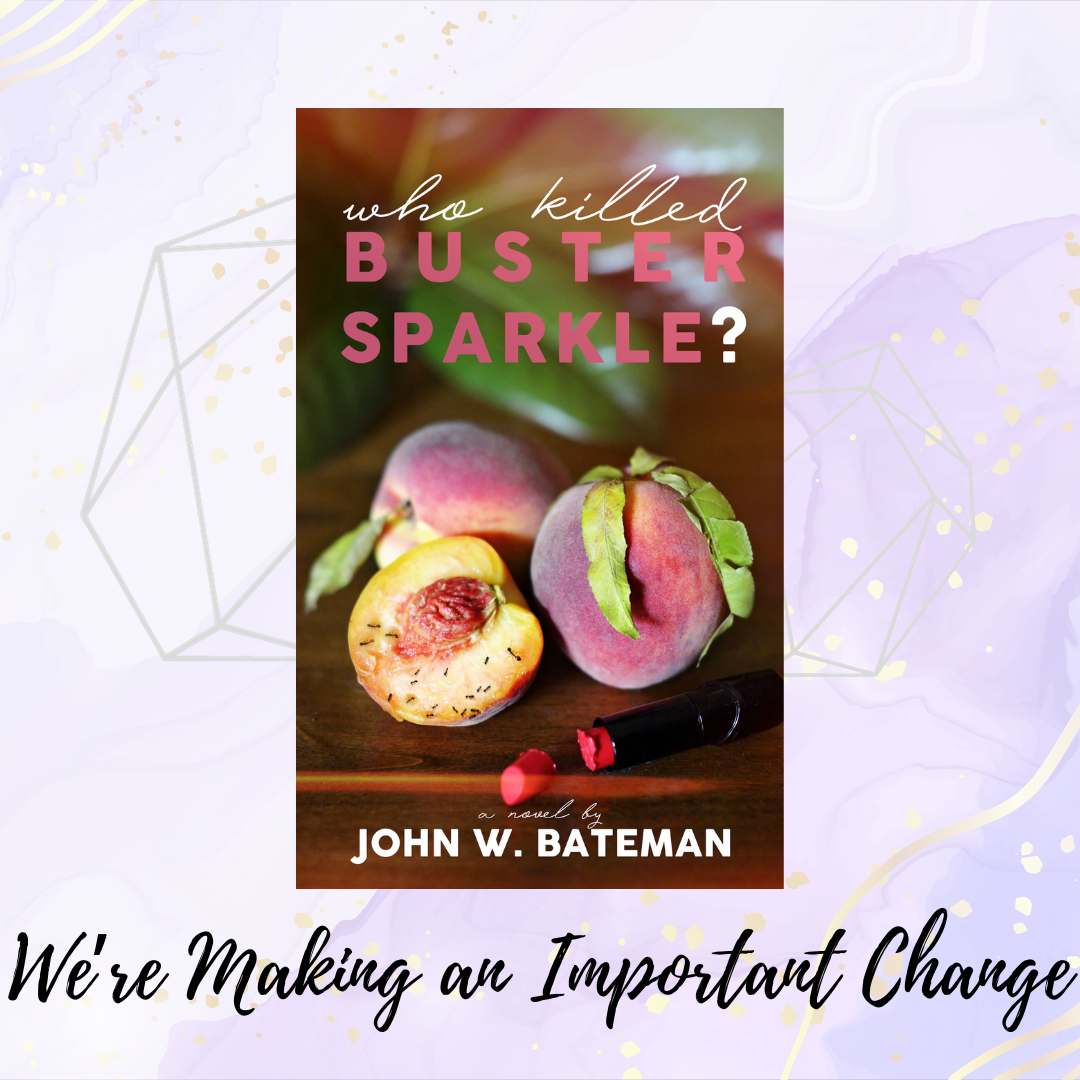 As writers and publishers there are times when we opt to include words, sometimes those that are taboo, in our stories because we believe they fit the character or the plot or the era. BUT, sometimes, long after printing and hours of pondering, we decide that maybe those stories would be better off without those words because they are harmful to others. Recently, John and Summer worked together to eliminate two slurs that were originally published in WHO KILLED BUSTER SPARKLE?. They simply didn’t feel right. We’d like to use this opportunity to start a discussion about using words, particularly those that harm certain groups of people. To start, John W. Bateman and Unsolicited Press have included the following foreword in the book, which is currently being reprinted. New copies, without the slurs, will be available on January 1, 2024. Please take a moment to read it: “Specificity gives a reason for everything.” It’s difficult to step up and say Hey, I think we made a mistake. But what’s important, is taking the steps to rectify those mistakes. We hope that we can continue this conversation with readers, writers, and others in the publishing industry.
To demonstrate our sincere goal to champion the underserved, we will be donating 25% of the profit from all future sales of WHO KILLED BUSTER SPARKLE? to Black and Pink. Black & Pink National is a prison abolitionist organization dedicated to abolishing the criminal punishment system and liberating LGBTQIA2S+ people and people living with HIV/AIDS who are affected by that system through advocacy, support, and organizing. DECEMBER 12, 2023 -- What if we "Fast forward a hundred years?" as the first poem in The Book of Leavening asks. Would our "voices turn votives: every hour/ candling from windowsill to sea"? Would we "find fortune in last casts of light?" These poems are deeply concerned with imagining a future far beyond our current lives.
Through free verse poems mixed with ghazals, the poet considers not simply the joys and storms of our current lives, but also how those joys and storms will ripple into future generations. Wrestling with questions of how the personal affects the universal, these poems interrogate milestones and rituals--marriage, childbirth, the loss of friends and relatives--to explore how these common passages feel from the inside. They also question the vows we make, personally, and as a civilization: "What can I do to love/ the way I promised?" What happens, when our world seems to make it ever more difficult to define and live out one's values? What does one hear, when one listens deeply to what the landscape tells us? This narrator finds hope and even salvation in that deep listening; as she states, "I listen at times to backs of bread,/ backs of books, fronts of hands. Listen/ so long, I question if anyone courts/ noise anymore." There may be no simple solutions--but, through the act of paying close attention, and directing compassion at what she sees, the poet shines a light on a hopeful path forward. About the Author Rebecca Givens Rolland is a writer of fiction, nonfiction, and poetry. Author of The Art of Talking with Children (HarperOne, 2022), she has an MFA in fiction from Lesley University and teaches at Harvard. She is the winner of the May Sarton New Hampshire First Book Prize for her first poetry collection, The Wreck of Birds. She has published two chapbooks with dancing girl press. Her poems appear in the Kenyon Review, Cincinnati Review, Gettysburg Review, Poetry Northwest, and Poets.org. ABOUT THE PRESS Unsolicited Press strives to produce exceptional works of fiction, nonfiction, and poetry from award-winning authors. Unsolicited Press is based out of Portland, Oregon and focuses on the works of the unsung and underrepresented. As a womxn-owned, all-volunteer small publisher that doesn’t worry about profits as much as championing exceptional literature, we have the privilege of partnering with authors skirting the fringes of the lit world. We’ve worked with emerging and award-winning authors such as Shann Ray, Amy Shimshon-Santo, Brook Bhagat, Kris Amos, and John W. Bateman. Learn more at unsolicitedpress.com. Find us on twitter and Instagram, @unsolicitedp. THE BOOK OF LEAVENING is available on December 12, 2023 as a paperback and e-book (all major retailers). Retailers, schools, and libraries can order copies through Ingram. The author is open to speaking with the media, holding readings, and engaging in other author opportunities. |
Popular Topics
All
We Support Indie Bookshops |









